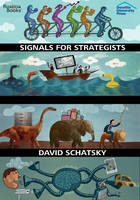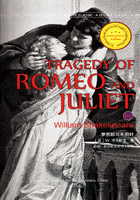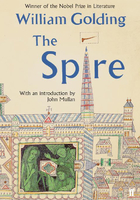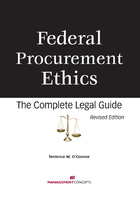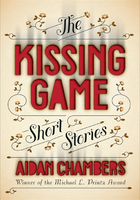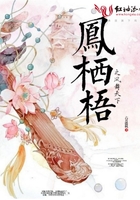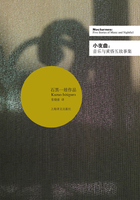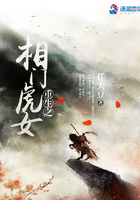Claire arrived late because of the heavy traffic outside Boston, and then she had a terrible time finding a parking place, and now as she stood outside the door to 65 Marlborough Street, she thought that she would give a very great deal just to sit down, to lie down, to make everything stop for ten full quiet minutes. She took a deep breath and exhaled slowly. Quod non mutari potest, subeundum est.
Claire turned the key in the lock and, leaning against the heavy oak door, dragged her overnight bag in after her. The door hissed and slammed shut. She steadied herself for a moment and then started up the long winding stairs. But at the first turning everything went black and she slid down the wall to sit on the carpeted stair. She closed her eyes and concentrated on the dark. Red arrows shot back and forth behind her eyelids and a sharp pain began in her chest. Nil timendum, she thought, and after a moment she drew in a long breath, exhaling slowly, like a runner, through pursed lips. The pain lessened somewhat and she started up the stairs again.
On the second-floor landing she could hear Birdie and Jim quarreling again. Birdie was about eighty and Jim was about a hundred, so Quinn said. Claire herself had never seen them. But she knew that Jim was almost completely deaf and beginning to lose his sense of time. He would turn on the stereo, sometimes at three in the morning, full blast, and a few minutes later Birdie's piercing voice would rise above the music, screaming, "Are you out of your mind? It's three o'clock in the morning," and then the fight would begin. They were going at it now.
"… the pot is ruined," Birdie was shouting. "You can't put the pot on the gas and then go take a nap."
"I didn't take a nap. I just fell asleep."
"You're losing your mind. If you don't watch it, I'm going to put you in a home."
"I can't hear you."
"I'm going to put you in a home."
"I can't hear you."
Claire could still hear them on the third floor. She put down her bag and took another deep breath, and then she laid her head against the doorframe. She had to get up for this. She had to look happy when she told Quinn her good news.
She was about to put her key in the lock when she became aware of someone staring at her. But there was no one on the landing. She stepped to the bannister and looked down the stairwell. Nobody. And there was nobody on the stairs that led up to the fourth floor either.
And then, exactly at eye level, she saw two small fat hands clutching the railings of the bannister. She leaned closer and was able to make out tiny eyes and a wisp of hair. A little boy was crouched on the stairs to the floor above. He stood up suddenly and rested his chin on the bannister. He had a round head and a flat white face that made his tiny eyes look even tinier, and he was nearly bald. He was a very ugly little boy.
"I saw you," he said. His voice was thin and sweet.
"Hello," Claire said. "And what's your name?"
"I saw you," he said.
"You did?" Claire said. "When did you see me? Hmmm? What did you see me doing?"
The little boy stared at her solemnly.
"What's your name? Can you tell me your name?"
He ducked beneath the bannister and continued to stare at her. But as she put the key in the lock and opened the door, he came down the stairs and stood in front of her. He was even smaller than she'd thought. He must be five or six, but he looked ancient.
"Leopold," he said.
"Leopold. What a nice name you have. And do you live upstairs, Leopold?"
"Do you know what?" he said.
"What?" she said. "Tell me."
"My grandma smells like custard pie."
He turned and ran up the stairs out of sight.
Claire watched him go and then stepped inside the apartment, anxious suddenly about Quinn. They had been apart for a full week, the longest ever. What if he had changed? And how would he take the news?
"Sweetheart," Quinn called from the study, "I'm in here. Come!" and then after he'd kissed her, "Look," he said. "Look what I've done." A sheet of paper half-filled with words stuck out of the typewriter and next to it was his notebook and a few typed sheets.
"Oh, that's wonderful," Claire said. "You're wonderful."
"I love you, Claire," Quinn said suddenly. "I love only you," and he kissed her with such intensity that she was surprised. "I am the luckiest, fuckiest man in the world," he said. "Num, num, num."
"You and me," Claire said, responding. "Just us."
They made love even before she unpacked, and for the first time since they'd married, their perfunctory lovemaking took on real excitement.
The truth was that Quinn was beset by guilt. In the past week he had written almost nothing, and on his few forays to the library and his one visit to the Massachusetts Historical Society, he had not even taken notes. He had watched people and he had daydreamed. In fact, during the past week he had done nothing but think of that woman.
Several times Quinn had strolled through Bonwit Teller hoping to run into her again. And on the odd chance that she made a career of shoplifting, he had checked Saks and Lord and Taylor as well. Then, on Thursday, he saw her. She came out of Shreve, Crump and Low carrying several little bags and she went next door to Brighams for a cup of coffee. Black. He followed her, sat on the stool next to her, watched her—his heart pounding—as she drank her coffee and looked off into space. He started to follow her when she left Brighams and headed across the Public Gardens, but suddenly he felt foolish. He went home and wrote two lines in his notebook: "Subject for a novel; shoplifter steals a handbag from Saks; store detective follows her and later falls in love." He drew a line through "handbag" and, above it, he wrote "necklace."
Quinn was so pleased with this, he decided to take a break and go for a walk by the river. But once in the street, he turned toward the Gardens and then toward Beacon Hill. At the foot of Mount Vernon Street he passed a man in jeans and T-shirt whom he recognized at once as Angelo. Quinn lowered his head and walked faster. Halfway up the block he turned and looked back; Angelo, too, had turned and was staring at him. At once Quinn headed right, toward the Gardens, and from there he went straight home.
The next morning Quinn worked at his desk. He scribbled in his notebook: descriptions of place, of weather, and finally a lengthy description of the store detective, who looked a lot like himself, and notes for a description of the woman. He couldn't quite get her, so he wrote words merely: "blond, thin, very thin, horsey set, rich." But he realized that he had described nobody. He wrote "vague, ethereal." And then: "thief." He sat there thinking for more than an hour but nothing further came to him.
He decided to go out for a walk. At the door, he was once again startled by Leopold who, as usual, was crouching on the stairs and peering at him through the bannister. "How are you today?" Quinn said, as Leopold studied him with his tiny eyes. "Keeping track of the world?" Leopold was the strangest little creature; no matter how often you ran into him, you were always surprised—unpleasantly, too—to discover he was there.
Out in the street the word he had been looking for suddenly came to him. Possessed. She was possessed. He thought of going back to write it down, but it was too hot to climb those stairs, and he didn't want to see Leopold again, and besides he would never forget it anyway. Possessed. The mot juste. The key.
In Louisburg Square, Quinn stood at a distance from the house, staring up at the bay window. What had he expected to see? It was a beautiful house, a rich house; there was nothing mysterious or magical about it. He crossed to the opposite side of the small Square and walked the length of the street. He stood there, examining each of the houses opposite, hers in particular. He wanted to be able to describe this, he told himself.
And then Angelo appeared, coming up the stairs from the apartment below; a young man trailed behind him. They stood on the sidewalk in a tight embrace, until at last Angelo broke away, pushing him off. They laughed. The young man took a few steps and then returned, whispered something, and put his hand on Angelo's crotch. Again Angelo pushed him away, not laughing this time. The young man turned and left.
From the other side of the Square, Quinn watched, repelled and fascinated.
Angelo lit a cigarette and sat on the stairs to Number 17, smoking, gazing off into space. To Quinn, Angelo seemed to be gazing straight at him, and after a moment's panic, he began walking, slowly at first, but then quickening his pace. At the corner Angelo intercepted him.
"Hello again."
Quinn stopped, guilty.
"Well, are you ready?"
"Sorry," Quinn said, and walked away rapidly.
"Just say the word," Angelo said. "I'm ready when you are."
Quinn went home, shaken. And it did not help when, at the head of the stairs, Leopold, unseen and unexpected, suddenly said, "I saw you." Quinn went inside and lay down.
Angelo had unnerved him, that was the trouble. It wasn't spying on the woman that was dangerous; it was that queer. He had never in his life been approached by a queer. He had never been approached by anybody. Man or woman. Quinn ran his finger across his upper lip, feeling the smooth skin, the single small ridge. Hideous. He got up and looked at himself in the mirror. The scar was redder than usual. Bunny Quinn. He was disgusting. How lucky he was to have Claire.
He napped for a while and when he woke, he went straight to his typewriter. He wanted to have something to show Claire when she arrived this afternoon. He typed up his notes, expanding them as he went. But there was something he had forgotten; the mot juste for that woman. What was it? He was puzzling over this when he heard Claire at the door.
"Sweetheart," he had called out to her, grateful suddenly for her soft smile and the shape of her head and her unconditional love. "I am the luckiest, fuckiest man in the world," he said, and was surprised at the sudden access of passion. In no time they were in bed making love.
Afterward they lay side by side, holding hands, confident—each for a different reason—that they had begun the best part of their lives, together.
The evening started out fine. They showered and dressed, chatting away about Claire's students and Aunt Lily and the strange little Leopold.
"His voice is interesting," Claire said. "It's thin and sweet. You don't expect it, because he looks like a dwarf, does little Leopold. A very old dwarf."
"No. He's a piglet, in glasses."
"But he doesn't wear glasses."
"Well, maybe he should. It's a good picture, don't you think? A piglet, in glasses?"
And so it all started out fine. Claire insisted that this was her treat, that it was a special dinner, that she had wonderful news. Quinn was excited. He put aside the anxiety caused by his encounter with Angelo. And he put aside the guilt that came from not working and from something else, from lying to Claire maybe; he promised himself he would never do that again. He put aside anything, everything, that might interfere with a good meal and a wonderful evening and a perfect weekend, just him and Claire, Claire and him, the two of them. But no sooner was he in a terrific frame of mind than Claire announced they were going to La Cigale. Quinn panicked; La Cigale was practically next door to Louisburg Square, and Angelo.
"No. Out of the question," Quinn said. "It's much too expensive."
"Noli perturbare," Claire said. "Aren't you glad you've got a rich wife?"
And she led him off, down Marlborough, across the Gardens, and, as Quinn grew increasingly nervous, up Mount Vernon Street to La Cigale. He was certain they would run into Angelo. He was certain that Angelo would smile at him or wave to him, and he would be stuck trying to explain to Claire who Angelo was and how he knew him. They entered the restaurant and Quinn ordered a double Scotch even before they were seated.
Safe inside the restaurant, a drink in his hand, Quinn began to feel less panicky. More cross than nervous now, he finished his drink and ordered another. He looked around the small, elegant room. The decor was dull rose and gray, with stiff linen napery and old silver. Frescoes on the wall. The maitre d' in a tux. A sommelier. It was ridiculous. It was too expensive. Claire's idea of how the middle class should improve themselves. What a waste. What utter nonsense.
The waiter brought his new drink and Quinn raised it to Claire, a sour look on his face now. Claire smiled, confused.
"Are you all right?" she said.
"Of course I'm all right. I'm fine. Why shouldn't I be all right?"
"It's the walk," Claire said. "It's too hot for that walk, especially up the hill."
"I said I'm all right." He picked up the menu. "I'm hungry, I guess. I'll be fine once I've had something to eat."
"I'm hungry, too," Claire said, looking at the list of entrees, the sole meuniere and the magret de canard and the rosemaried rack of lamb, knowing that—fight fat, think thin—she would make do with a green salad and plain broiled fish with lemon. Quinn, she knew, would have the rack of lamb.
They finished eating and Quinn leaned back in his chair and smiled at her. Good old reliable, loving, generous Claire. He was so mean to her. He was such a bastard. And he didn't want to be. It was just that he had no job and he was a flop, and oh, God, how lucky he was to have her.
"Hello, sweetie," he said, and leaned toward her, reaching across for her hand.
Claire had been waiting for this moment; it always came if she waited long enough. "Guess what!" she said. And then she told him her good news.
Quinn went white and sat back in his chair, stunned. "A baby?" he said. "Are you sure?"
"I tested positive," she said, and as she looked at him her eyes filled with tears. "I thought you'd be pleased," she said. "I thought…"
"I am," he said. "I am pleased. I'm just… well… surprised, that's all. The news—and it's wonderful news, Claire; honestly—well, it's a surprise." He smiled at her and took her hand again.
"Oh, good," she said. "Oh, good. I knew you'd be pleased, even though we didn't plan to have one just yet; I mean, we agreed to wait, and everything, but I knew you'd be happy just the same. Oh, Quinn. I'm so happy. For us. It's going to bring us even closer together, I think. Don't you, Quinn? Don't you think so? The baby?"
"It's us," he said. "It'll always be just us." He was smiling and smiling. "Well, this is news," he said.
They sat, holding hands. So he was to be a father. Oh, God, if only he had a job. Well, at least he had Claire.
She sat there now, smiling back at him. It was more a simper than a smile; a pleased, self-satisfied simper. The little mother. She was already putting on weight. Her face was naturally round, roundish, but pretty and sweet. He had fallen in love with her because of the sweetness and straightforwardness of that look. She was exactly what she appeared to be. And she loved him.
The simper and the new weight—how much could she have put on in only a week?—made her look plumpish, though. Dowdy almost. With her little cap of black hair and her big teeth.
His smile began to hurt.
"You're not happy about it, are you," she said. It was a statement.
"Well, let me just … but how could this have happened? I thought the pill was foolproof."
"I forgot it, I guess. I must have."
"How could you have forgotten? Didn't you think what this would mean?"
"Oh, Quinn."
"I'm sorry. I don't mean to upset you. I just can't believe you could be so… so careless. Wantonly careless." His voice shifted from anger back to concern. "I'm sorry, Claire, of course I don't mean that the way it sounds. I don't. Truly I don't. I love you. And I'll love the baby. It's just that it's a surprise. Okay?"
"Okay."
Quinn reached for the wine and discovered the bottle was empty. "Waiter!" he said, a little louder than he had intended. "Could we have our coffee, please." The waiter looked startled for a second and then went to get them coffee. "Considering the prices here, the service—as the children quaintly put it—the service sucks!"
"But, even apart from the surprise, you aren't happy about it, are you. Are you?"
"Claire, look." His voice was flat, and patient. "Sometimes I feel I don't even know you. Certainly I fail to understand you. What do you want? You tell me in the middle of this fucking restaurant that we're going to have a baby—by accident, I might point out—and you expect me… well, I don't know what you expect."
"Let's talk about it," she said. "Are you worried about money?"
"Ha!" he said, nodding to the waiter who had brought the coffee and the check, "why should I worry about money? Just because I have no job and no likelihood of one? Because I've just begun a novel that I've been hoping to write for as long as I've lived, and now I'll have to give it up? Just because we don't even have a place to live, except that rented apartment down the street that costs us more per month than the national debt?" He saw that her eyes were filled with tears, but he wanted to go on; he wanted to say it all. And he just gave up. "Shit, piss, fuck," he said. "I don't know, Claire. I don't know. I'm sorry. For you. For me. I don't know."
"It'll be all right," she said. "It'll be okay."
"Okay," he said. "I'm sorry, sweetheart; I really am." And then, "Let's get out of this place." He took from his wallet the fifty and the twenty that Claire had given him, glanced at the check and, shrugging, threw some ones on top. "What the hell," he said.
Outside on the sidewalk Quinn was suddenly overcome by guilt. He pulled her close, whispered "I love you," and kissed her lightly on the lips. Claire stood there, defeated, and tried to smile.
"Well, hello again!" someone said.
Quinn looked up and saw it was Angelo; standing beside him was the woman, the shoplifter.
"Twice in the same day," Angelo said. The way he stood there indicated a man ready for a chat.
"Oh," Quinn said. "Yes. Good to see you."
Angelo, waiting for an introduction, looked from Quinn to Claire and back to Quinn. He was obviously amused, enjoying this. Quinn made as if to go.
"How was dinner?" Angelo nodded at the restaurant.
"Oh, very good," Quinn said.
"Very nice," Claire said.
"We should keep in touch," Angelo said, putting his hand on Quinn's arm, looking into his eyes, nearly laughing. Quinn turned away. As if it were an afterthought, Angelo said, "And this is my sister-in-law, Sarah Slade. I believe you've met."
"No," Quinn said. "It's a pleasure." He put his hand to his lip. "My wife, Claire. Claire, we really ought to go."
"Babysitter?"
Quinn flushed and said, "Very nice to see you." He nodded at Sarah Slade and, taking Claire's arm, he turned, decisively, toward home.
After a moment Claire said, "He wanted to talk. Who is he? And who is she?"
"Nobody," Quinn said. "Angelo something." And then, inspired, "He's a guy I met at the library; I don't even remember his name. That's why I didn't introduce you."
"And who's she?"
"I haven't any idea. His sister-in-law, he said. I think."
"Sarah Slade. I know that name."
"I've never heard of it."
"I know it from somewhere. Where did you meet her?"
"I didn't. I haven't."
"Angelo said you'd met. He said 'I believe you've met.'"
"Well, I didn't. We haven't. Where in hell would we meet? Does she look like somebody who does research at the library? And I don't know who he is, either. Frankly, he looks like a faggot to me."
"Faggot? My, you are angry. He doesn't look gay to me. I think he's quite good-looking."
"Can we talk about something else? Please? I don't really care about those people."
"Neither do I," Claire said. She pressed against him and said, "Let's start the evening all over again? All right? We've got so much to be happy about?"
"We do," Quinn said, slipping his arm around her waist. "We have everything and we have each other."
That night, halfway between midnight and dawn, Claire woke Quinn and said, in a frightened voice, "Quinn? Sweet? We don't have to have the baby, if you really don't want it." There was silence. "Quinn?"
"I'm thinking," he said. "We should do whatever you want."
"Well, I want it," she said. "If you do."
"Well then we'll have it," he said. "And that's settled, once and for all."
And then he rolled over and pretended sleep. Claire lay beside him, listening to his breathing, waiting for it to change from pretended sleep to real sleep. She waited a long, long time.

